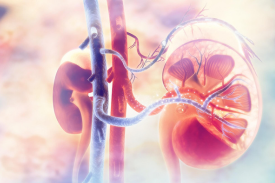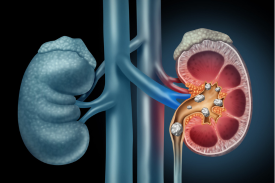Infertility is a significant issue that affects many couples worldwide. Male infertility is one of the major contributing factors, accounting for about 30% of infertility cases. It is defined as the inability to achieve pregnancy after one year of regular, unprotected intercourse. Male infertility can result from various factors, including hormonal imbalances, genetic disorders, lifestyle choices, and environmental factors. In this blog, we will discuss the reasons for male infertility, its diagnosis, and the available therapies.
Reasons for Male Infertility:
- Sperm disorders: Sperm disorders are the most common cause of male infertility. These include low sperm count, poor sperm motility, and abnormal sperm shape.
- Hormonal imbalances: Hormonal imbalances can affect the production of sperm, leading to infertility. Testosterone, follicle-stimulating hormone (FSH), and luteinizing hormone (LH) are some of the hormones that play a critical role in sperm production.
- Genetic disorders: Genetic disorders can affect the quality and quantity of sperm. Klinefelter syndrome, Y chromosome microdeletions, and cystic fibrosis are some of the genetic disorders that can cause male infertility.
- Lifestyle choices: Lifestyle choices such as smoking, excessive alcohol consumption, drug abuse, and poor diet can affect sperm production and quality.
- Environmental factors: Exposure to environmental factors such as radiation, pesticides, and heavy metals can also cause male infertility.
Diagnosis of Male Infertility:
The diagnosis of male infertility involves a series of tests that evaluate the quantity, quality, and movement of sperm. The tests may include:
- Semen analysis: This is the most common test for male infertility. It involves the analysis of a semen sample to evaluate the quantity, quality, and movement of sperm.
- Hormone tests: Hormone tests measure the levels of hormones such as testosterone, FSH, and LH in the blood.
- Genetic testing: Genetic testing can identify genetic disorders that may be responsible for male infertility.
- Ultrasound: Ultrasound can detect any abnormalities in the reproductive system, such as varicoceles or obstructions in the vas deferens.
Available Therapies:
- Medications: Medications can be prescribed to treat hormonal imbalances or infections that may be causing male infertility.
- Surgery: Surgery may be necessary to correct obstructions in the vas deferens, repair varicoceles, or retrieve sperm for use in assisted reproductive techniques.
- Assisted Reproductive Techniques: Assisted reproductive techniques such as intrauterine insemination (IUI), in vitro fertilization (IVF), and intracytoplasmic sperm injection (ICSI) can be used to help couples conceive.
- Lifestyle changes: Lifestyle changes such as quitting smoking, reducing alcohol consumption, and improving diet and exercise habits can help improve sperm production and quality.
Conclusion:
Male infertility can have various causes, including sperm disorders, hormonal imbalances, genetic disorders, lifestyle choices, and environmental factors. The diagnosis of male infertility involves a series of tests that evaluate the quantity, quality, and movement of sperm. The available therapies for male infertility include medications, surgery, assisted reproductive techniques, and lifestyle changes. If you are struggling with infertility, it is important to consult a healthcare provider who can help identify the cause and provide appropriate treatment options.
At puneurologist.in, there are specialists who are dedicated to helping couples navigate the challenges of infertility. With a range of diagnostic and treatment options, including medications, surgical procedures, and assisted reproductive technologies, they can help identify the underlying cause of male infertility and develop a personalized treatment plan.
If you or your partner are struggling with infertility, don’t hesitate to reach out to puneurologist.in for support and guidance. With their expertise and compassion, they can help you on your journey towards parenthood.




